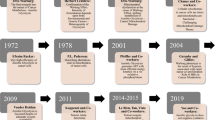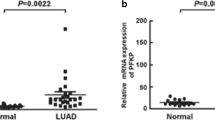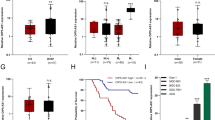Abstract
This study aimed to explore the molecular mechanism of LCN2 regulating aerobic glycolysis on abnormal proliferation of HCC cells. Based on the prediction of GEPIA database, the expression levels of LCN2 in hepatocellular carcinoma tissues were detected by RT-qPCR analysis, western blot, and immunohistochemical staining, respectively. In addition, CCK-8 kit, clone formation, and EdU staining were used to analyze the effect of LCN2 on the proliferation of hepatocellular carcinoma cells. Glucose uptake and lactate production were detected using kits. In addition, western blot was used to detect the expressions of aerobic glycolysis-related proteins. Finally, western blot was used to detect the expressions of phosphorylation of JAK2 and STAT3. We found LCN2 was upregualted in hepatocellular carcinoma tissues. CCK-8 kit, clone formation, and EdU staining results showed that LCN2 could promote the proliferation in hepatocellular carcinoma cells (Huh7 and HCCLM3 cells). Western blot results and kits confirmed that LCN2 significantly promotes aerobic glycolysis in hepatocellular carcinoma cells. Western blot results showed that LCN2 could significantly upregulate the phosphorylation of JAK2 and STAT3. Our results indicated that LCN2 activated the JAK2/STAT3 signaling pathway, promoted aerobic glycolysis, and accelerated malignant proliferation of hepatocellular carcinoma cells.






Similar content being viewed by others
References
Torimura, T., & Iwamoto, H. (2021). Treatment and the prognosis of hepatocellular carcinoma in Asia. Liver International, 42(9), 2042.
Sun, T., & Zhang, J. (2021). ETV4 mediates the Wnt/β-catenin pathway through transcriptional activation of ANXA2 to promote hepatitis B virus-associated liver hepatocellular carcinoma progression. Journal of biochemistry, 170(5), 663–673.
Wu, R., et al. (2019). Zn(II)-curcumin solid dispersion impairs hepatocellular carcinoma growth and enhances chemotherapy by modulating gut microbiota-mediated zinc homeostasis. Pharmacological Research, 150, 104454.
Ganapathy-Kanniappan, S. (2018). Molecular intricacies of aerobic glycolysis in cancer: Current insights into the classic metabolic phenotype. Critical Reviews In Biochemistry And Molecular Biology, 53(6), 667–682.
Qin, Y., et al. (2019). Homeodomain-interacting protein kinase 2 suppresses proliferation and aerobic glycolysis via ERK/cMyc axis in pancreatic cancer. Cell Proliferation, 52(3), e12603.
Li, Y., et al. (2019). The ubiquitination ligase SMURF2 reduces aerobic glycolysis and colorectal cancer cell proliferation by promoting ChREBP ubiquitination and degradation. The Journal Of Biological Chemistry, 294(40), 14745–14756.
Wang, W., et al. (2022). LINC01605 promotes aerobic glycolysis through lactate dehydrogenase A in triple-negative breast cancer. Cancer Science, 113(8), 2484.
Li, X., et al. (2018). lncRNA Ftx promotes aerobic glycolysis and tumor progression through the PPARγ pathway in hepatocellular carcinoma. International Journal Of Oncology, 53(2), 551–566.
Costa, D., et al. (2017). LCN2 overexpression in bone enhances the hematopoietic compartment via modulation of the bone marrow microenvironment. Journal Of Cellular Physiology, 232(11), 3077–3087.
Lim, D., Jeong, J., & Song, J. (2021). Lipocalin 2 regulates iron homeostasis, neuroinflammation, and insulin resistance in the brains of patients with dementia: Evidence from the current literature. CNS Neuroscience & Therapeutics, 27(8), 883–894.
Yao, F., et al. (2021). A targetable LIFR-NF-κB-LCN2 axis controls liver tumorigenesis and vulnerability to ferroptosis. Nature Communications, 12(1), 7333.
Gao, J., Luo, T., & Wang, J. (2021). Gene interfered-ferroptosis therapy for cancers. Nature Communications, 12(1), 5311.
Zhao, H., Ding, F., & Zheng, G. (2020). LncRNA TMPO-AS1 promotes LCN2 transcriptional activity and exerts oncogenic functions in ovarian cancer. The FASEB Journal, 34(9), 11382–11394.
Wang, Y., et al. (2013). Lipocalin-2 negatively modulates the epithelial-to-mesenchymal transition in hepatocellular carcinoma through the epidermal growth factor (TGF-beta1)/Lcn2/Twist1 pathway. Hepatology (Baltimore, Md.), 58(4), 1349–1361.
Li, X., et al. (2022). Targeting long noncoding RNA-AQP4-AS1 for the treatment of retinal neurovascular dysfunction in diabetes mellitus. EBioMedicine, 77, 103857.
Fu, J., & Wang, H. (2018). Precision diagnosis and treatment of liver cancer in China. Cancer Letters, 412, 283–288.
Schröder, S., Pinoé-Schmidt, M., & Weiskirchen, R. (2022). Lipocalin-2 (LCN2) deficiency leads to cellular changes in highly metastatic human prostate cancer cell line PC-3. Cells, 11(2), 260.
Xu, J., et al. (2020). LCN2 Mediated by IL-17 affects the proliferation, migration, invasion and cell cycle of gastric cancer cells by targeting SLPI. Cancer Management And Research, 12, 12841–12849.
Barsoum, I., Elgohary, M., & Bassiony, M. (2020). Lipocalin-2: A novel diagnostic marker for hepatocellular carcinoma. Cancer Biomarkers, 28(4), 523–528.
Tseng, H., et al. (2022). A novel AMPK activator shows therapeutic potential in hepatocellular carcinoma by suppressing HIF1α-mediated aerobic glycolysis. Molecular Oncology, 16(11), 2274–2294.
Sun, K., et al. (2019). Oxidized ATM-mediated glycolysis enhancement in breast cancer-associated fibroblasts contributes to tumor invasion through lactate as metabolic coupling. EBioMedicine, 41, 370–383.
Liu, X., et al. (2015). Effects of the suppression of lactate dehydrogenase A on the growth and invasion of human gastric cancer cells. Oncology Reports, 33(1), 157–162.
Liu, C., et al. (2021). Pharmacological targeting PTK6 inhibits the JAK2/STAT3 sustained stemness and reverses chemoresistance of colorectal cancer. Journal Of Experimental & Clinical Cancer Research : Cr, 40(1), 297.
Bao, X., et al. (2021). β-elemonic acid inhibits growth and triggers apoptosis in human castration-resistant prostate cancer cells through the suppression of JAK2/STAT3/MCL-1 and NF-ĸB signal pathways. Chemico-Biological Interactions, 342, 109477.
Jiang, Q., et al. (2022). Peptide identification of hepatocyte growth-promoting factor and its function in cytoprotection and promotion of liver cell proliferation through the JAK2/STAT3/c-MYC pathway. European Journal Of Pharmacology, 920, 174832.
Lei, R., et al. (2017). IL-9 promotes proliferation and metastasis of hepatocellular cancer cells by activating JAK2/STAT3 pathway. International Journal Of Clinical And Experimental Pathology, 10(7), 7940–7946.
Li, L., et al. (2021). Circ_0072088 promotes progression of hepatocellular carcinoma by activating JAK2/STAT3 signaling pathway via miR-375. IUBMB Life, 73(9), 1153–1165.
Data Availability
All data and materials in the manuscript will be made available by the corresponding authors.
Author information
Authors and Affiliations
Contributions
B.H.: writing, conceptualization, methodology, software
Z. A.: data curation, original draft preparation
T. G.: visualization, investigation
Y. P.: supervision, methodology, validation
K. L.: reviewing and editing, project management
Corresponding author
Ethics declarations
Ethical Approval
This study was approved by the ethics committee of Sichuan Mianyang 404 Hospital and written consent approval was obtained from all participants.
Consent to Participate
Yes.
Consent to Publish
Yes.
Conflict of Interest
The authors declare no competing interests.
Additional information
Publisher’s Note
Springer Nature remains neutral with regard to jurisdictional claims in published maps and institutional affiliations.
Rights and permissions
Springer Nature or its licensor (e.g. a society or other partner) holds exclusive rights to this article under a publishing agreement with the author(s) or other rightsholder(s); author self-archiving of the accepted manuscript version of this article is solely governed by the terms of such publishing agreement and applicable law.
About this article
Cite this article
Han, B., An, Z., Gong, T. et al. LCN2 Promotes Proliferation and Glycolysis by Activating the JAK2/STAT3 Signaling Pathway in Hepatocellular Carcinoma. Appl Biochem Biotechnol 196, 717–728 (2024). https://doi.org/10.1007/s12010-023-04520-y
Accepted:
Published:
Issue Date:
DOI: https://doi.org/10.1007/s12010-023-04520-y




